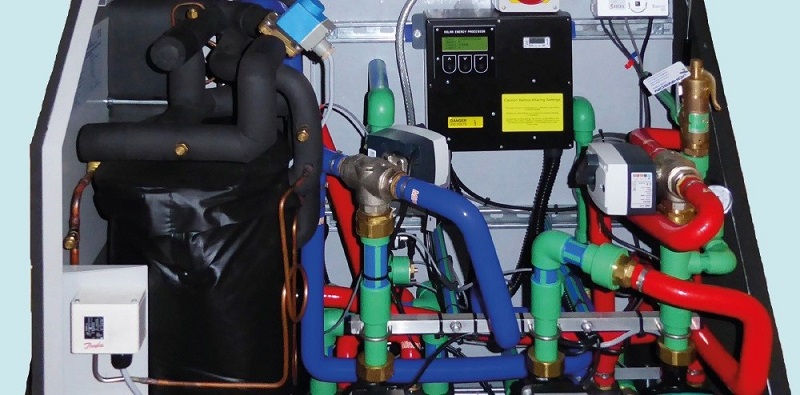Heat metering
Heating accounts for nearly half of final energy consumption in the UK (48% in 2013) and 78% of non-transport energy use (DECC, 2013).
Heat can be considered to be a utility, like water, gas, and electricity. Communal or district heating systems are becoming more common and these involve the centralised generation of heat and the distribution of this heat to individual dwellings. Heat meters are then used to measure the amount of heat delivered to dwellings, just like water, gas, and electricity meters.
The Heat Network (Metering & Billing) Regulations 2014 apply to systems such as this, in which water is heated at a central source of production before being piped to multiple buildings (district networks) or multiple customers in a single building (communal networks).
Under the Regulations, heat suppliers are required to register their heat networks with the Office for Product Safety & Standards. In the case of unmetered networks, they may be required to install meters measuring customers’ actual consumption of heat. Where such meters are installed, heat suppliers are required to use them to bill customers according to their actual consumption.
When a householder or business has a heating system which is classified as renewable, the government offers a financial incentive which is related to the amount of renewable heat generated. For businesses (and some homes), the payment is made according the metered quantity of renewable heat generated.
The fiscal nature of meters, whether they are being used to establish monies due or monies receivable, means that accuracy is extremely important. However, there is not a long tradition of heat metering in the UK, and building services engineers may have little or no previous experience of heat metering installation and operation. In addition, metering heat is a more complex than metering other utilities.
A government report Heat Meter Accuracy Testing, published in November 2016, looks at heat metering applications, standards and legislation and heat metering technologies.
The research behind the report was directed at investigating the accuracy of different meter types, particularly when the meters are incorrectly installed. It touches on how the accuracy of meters can decline over time, and after how long recalibration should be carried out.
The report is directed at policy makers, housing associations, district heating providers, heat meter manufacturers, consultants, heating installers, and householders.
This article was originally published here by BRE Buzz on 16 Jan 2017. It was written by Alan Abela.
--BRE Buzz
[edit] Find out more
[edit] Related articles on Designing Buildings Wiki
Featured articles and news
Professional practical experience for Architects in training
The long process to transform the nature of education and professional practical experience in the Architecture profession following recent reports.
A people-first approach to retrofit
Moving away from the destructive paradigm of fabric-first.
International Electrician Day, 10 June 2025
Celebrating the role of electrical engineers from André-Marie Amperè, today and for the future.
New guide for clients launched at Houses of Parliament
'There has never been a more important time for clients to step up and ...ask the right questions'
The impact of recycled slate tiles
Innovation across the decades.
EPC changes for existing buildings
Changes and their context as the new RdSAP methodology comes into use from 15 June.
Skills England publishes Sector skills needs assessments
Priority areas relating to the built environment highlighted and described in brief.
BSRIA HVAC Market Watch - May 2025 Edition
Heat Pump Market Outlook: Policy, Performance & Refrigerant Trends for 2025–2028.
Committing to EDI in construction with CIOB
Built Environment professional bodies deepen commitment to EDI with two new signatories: CIAT and CICES.
Government Grenfell progress report at a glance
Line by line recomendation overview, with links to more details.
An engaging and lively review of his professional life.
Sustainable heating for listed buildings
A problem that needs to be approached intelligently.
50th Golden anniversary ECA Edmundson apprentice award
Deadline for entries has been extended to Friday 27 June, so don't miss out!
CIAT at the London Festival of Architecture
Designing for Everyone: Breaking Barriers in Inclusive Architecture.
Mixed reactions to apprenticeship and skills reform 2025
A 'welcome shift' for some and a 'backwards step' for others.























